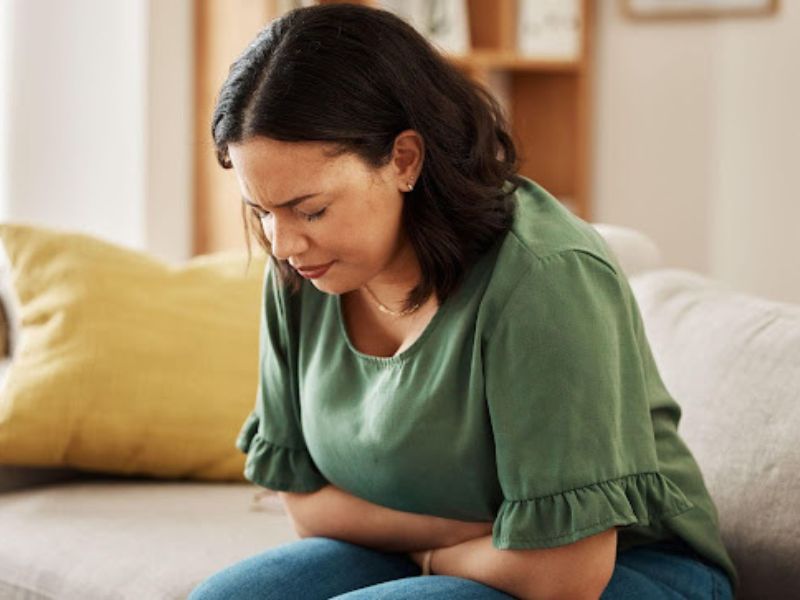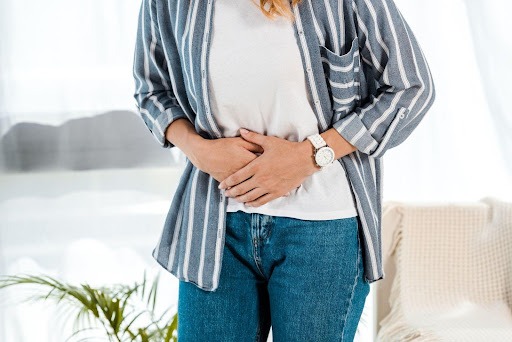
Understanding and Managing Bloating During Menopause: Causes, Symptoms and Treatments
Managing Bloating During Menopause
Menopause is a big change in a woman’s life. It means the end of her reproductive years and the start of another biological phase. Usually, it takes place between 45 and 55 years old when hormonal changes become very significant leading to numerous physical and emotional symptoms such as bloating which is one of the most bothering symptoms during this period.
Although bloating in menopause is quite widespread, it remains underestimated or misinterpreted thereby increasing silence among several women while they suffer from it.
This bloating experienced by menopausal women can be characterized by an unending feeling of fullness or tightness in the abdomen with occasional swelling coupled with discomfort in the same area. The intensity of this symptom can vary; sometimes it is not more than a minor annoyance while at other times, it causes severe pain that incapacitates normal daily activities.
Hormone changes particularly declining estrogen levels majorly cause bloating that occurs during menopause but there are other important factors like stress, lifestyle changes, and diet.
Understanding bloating during menopause needs to take into account physiological phenomena as well as lifestyle implications.
It isn’t just about growing old; it’s a stakeholder interface involving hormones, diets, stress levels plus physical exercise activity. This submission will help us to know what triggers this condition so that we can brainstorm preventive measures for such types of issues as well as their treatment options.
Bloating During Menopause
Overlooked often but highly crucial to improving the quality of life for women experiencing them at this stage is how detrimental menopausal bloating can turn out to be. Bloating refers to feelings described commonly as fullness or tightness in the belly together with visible inflation.
It may cause general irritability coupled with some form of uneasiness on occasions even discomfiture or pain though less intense might be felt in it. Some women may have bloating during menopause occasionally, while for others it can be chronic and affect their daily routines, and emotional state.
Causes of Bloating during Menopause
1. Hormonal Changes
- Estrogen Decline: Estrogen is vital in various body functions regulating the retention and release of fluids. This hormone decline during menopause causes water retention thus leading to bloating.
- Progesterone Levels: Another important hormone progesterone also reduces with menopause. Low levels of progesterone cause a slow digestion process resulting in the build-up of gas as well as bloating.
2. Slower Digestive System
The digestive system slows down with aging which affects its efficiency when processing food. This occurs because food moves slowly through the gut due to this sluggishness that makes the production of gasses increase hence causing bloating.
3. Dietary Factors
However, some foods can only worsen this condition by making it more severe. Foods rich in salt, fizzy drinks plus those that are hard to digest may lead to an increased flatulence thereby inducing a feeling of expanded belly.

4. Stress and Anxiety
This phase is rather stressful occasioned by various transformations taking place within the system. Thus stress plus anxiety might impair digestion leading to such conditions as bloated bellies.
5. Physical Inactivity
Non-practice; no exercise; lack of sports activities – all these terms relate to a sedentary lifestyle is another factor that makes the digestive tube work slower with difficulty which induces intensification of such symptoms as distension.
Bloating and Menopause Symptoms
Bloating experienced during menopause comes with different signs including:
- Abdominal pain or discomfort
- A full or tight stomach
- Swollen stomach
- Excessive gas formation or flatus production
- Nausea or heartburn
These symptoms vary from mild to moderate and change for a day depending on what one has consumed or done in terms of exercise.

Bloating and Menopause Treatment
To handle menopausal bloating, it is necessary to make adjustments in the way one lives, eats and also involve a practical medical approach. Here are effective tactics one could employ to deal with bloating during menopause:
Changes in the Diet
- Increase Your Fiber Intake: Eating a diet that includes high amounts of fiber can help control your digestion system and prevent constipation, which may reduce bloating. Add whole-grain foods, fruits, vegetables, and beans to your meals.
- Stay Hydrated: Drinking enough water helps in flushing out excess sodium as well as reducing water retention. Aim at consuming 8 glasses of water every day.
- Cut Back on High Sodium Foods: Excessive consumption of sodium might lead to water retention hence bloating. Therefore, minimize intake of processed foodstuffs as well as salty foods.
- Eat Smaller More Frequent Meals: Putting too much food into your digestive tract at once, eating smaller portions more often can ease the load on the digestive system thereby making it difficult for you to bloat.

Modifications in Lifestyle
- Regular Exercise: Physical activity contributes to stimulating digestion therefore relieving patients from bloating conditions. One should endeavor to get at least 30 minutes of moderate exercise almost every day.
- Stress Management: Use stress reduction techniques such as yoga, meditation, deep breathing exercises, and mindfulness so that one can be able to manage their stress levels and improve their digestive health.
- Sufficient Sleep: It is important for people suffering from such conditions to ensure they have enough sleeping time because poor sleep can magnify stress as well as digestive disorders.

Medications
- Hormone Replacement Therapy (HRT): HRT has been proven significant in balancing hormonal levels thus contributing towards lowering some signs associated with menopause such as during its treatment of bloating. Nonetheless, this kind of therapy is suitable for some individuals only and should be discussed with a healthcare provider.
- Probiotics: Ingesting probiotic supplements can assist in maintaining a healthy balance of gut bacteria thereby enhancing digestion and decreasing bloating.

Revive contains 16 strains of Lactobacillus that help aid digestion and improve gut health.
- Over-the-Counter Medications: Antacids or anti-gas medications can be used to relieve bloating symptoms. However, these drugs should only be taken following the instructions given by a healthcare professional.
How to Prevent Menopause Bloating
To manage and reduce bloating during menopause one can adopt practical measures:
1. Maintain a Food Diary
This will allow you to track what you eat and also the symptoms associated with it which would enable you to identify the triggers and hence bring about any required changes in your diet.
2. Practice Mindful Eating
Eating slowly while chewing food properly would certainly aid your digestive system as well as prevent swallowing air that is known to cause swelling.
3. Artificial Sweeteners Must Be Limited
Some artificial sweeteners like sorbitol and mannitol lead to bloating and gassiness. Therefore, try not to consume much of them.
Final Takeaway
Menopausal women frequently suffer from bloating but this problem can easily be managed. If women understand why they have such discomforts, they can minimize or altogether stop having them. Combining dietary adjustments, changes in lifestyle, and medical interventions brings about an expanded approach to managing menopausal bloating.
Clinical nutritionists are some of the specialists whom one could consult on ways of making their life less painful during this period.
Experience relief from bloating and other gut issues by consulting expert clinical nutritionists and dieticians through our Miror app. Download now for personalized menopause support and guidance.
Education regarding menopause including its signs is vital. Women must feel free to talk about what they go through and get assistance without being ashamed about it. A supportive society plus access to useful information is important when dealing with the physical and emotional challenges encountered in menopause.
Citations

Malvika Fulwani




